Orange Africa Cup of Nations – Reflection
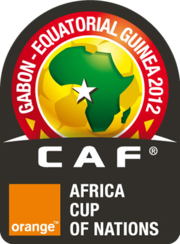 Tuesday 14 February 2012
Tuesday 14 February 2012
A chance now to reflect on the 2012 Orange Africa Cup of Nations, which for me will be remembered as the tournament of the ‘underdog’. A competition where the favourites, Senegal, Ghana and Ivory Coast, one-by-one fell by the wayside as teams such as Equatorial Guinea, Mali and eventual champions Zambia emerged from the shadows.
I’m a firm believer in that there is nothing like ‘being there’ to fully sample the atmosphere, to feel and witness events. One day I hope to get the opportunity to sample something of the Africa Cup of Nations. For now though I can only try and appreciate and observe through the various forms of media. The things that I am left with after this tournament (clichéd or not) include the vibrancy, colour and enthusiasm of the crowds, the goal celebrations (individual to every nation), a competition that was not at all predictable, some brilliant attacking play – balanced by some pretty poor defensive work and goalkeeping mistakes and of course Zambia emerging as winners in a twist of football fate.
However, there will be issues that the Confederation of African Football (CAF) will no doubt be looking at when they come to review the tournament. Amongst those is the attendances for the competition. Very few games were sold out and some crowds were embarrassingly low, such as (eventual winners) Zambia’s Quarter-Final fixture against Sudan which was officially recorded by CAF as being 200. As with any tournament, the vital questions to ask will be around the pricing of tickets, availability and distribution, as well as the interest of the ‘home’ fans in wanting to watch other countries play. It was reported that CAF was aware of the issue and did offer free tickets and transport to some games. However, I’m not sure how successful this was. I am not in anyway being critical of CAF, because I can quite clearly remember Euro ’96 in England, where sell-outs were the exception rather than the rule. Given that in 2013 the competition is in South Africa where the smallest stadium capacity is likely to be 41,000 (assuming the 2010 World Cup stadiums are used), then ticketing and attendances is a major topic for discussion.
They say that football is the same the world over, but anyone watching this tournament will know that this is not the case. Here in England we are force-fed a diet of Premier League, Champions League and La Liga, and the viewer is presented with what is touted as the ‘cream of football, the best in world’. In many ways though it is a very sanitised version of football. A game were increasingly any sort of physical contact and tackling is gradually being outlawed. There were at time some very crude challenges through the Africa Cup of Nations, but that is no surprise in an event of thirty two games. Referees seemed more lenient when dealing with the incidents and generally players just got on with it – simply part of the game. Would we see the same reaction in the Premier League? So was there a greater honesty in the Africa Cup of Nations?
I have been critical of some of the defending and goalkeeping (although both Kennedy Mweene and Boubacar Barry in the Final were excellent), in Gabon and Equatorial Guinea, but is it unfair to compare the European game with that of Africa? The FIFA rankings can be argued over all day long about their validity or otherwise, but it is interesting to do a couple of comparisons using them. Firstly, of the 16 qualifiers for Poland & Ukraine, 13 of them are in the top 25 in the World. Only Ivory Coast from the Africa Cup of Nations feature in the top 25. Secondly, if you take the FIFA rankings of the 16 teams that played in the 2012 Africa Cup of Nations and get an average, you get a figure of 75. Doing the same with those that have qualified for the UEFA European Championships, that average figure is 18. That is a difference of 57 places, which (whatever your view on the rankings), is a gulf in standards and therefore should be reflected in expectations about what we see as a spectator. Taking those figures and applying to the rankings it would see fixtures featuring Canada or China (both ranked equal 74th by FIFA) playing Ivory Coast (ranked 18th by FIFA) or Georgia (76) against Bosnia (19). It will be intriguing to compare the two tournaments once the 2012 UEFA European Champions are crowned later this year.
As with all major tournaments there are various awards handed out after the Final. For 2012 the following were presented (information from the Confederation of African Football [CAF] website)
Team of the tournament:
Goalkeeper: Kennedy Mweene (Zambia)
Defence: Jean-Jacques Gosso(Ivory Coast), Stophira Sunzu (Zambia), John Mensah (Ghana), Adama Tamboura (Mali).
Midfield: Emmanuel Mayuka (Zambia), Yaya Touré (Ivory Coast), Gervinho(Ivory Coast), Seydou Keita (Mali).
Forwards: Christopher Katongo (Zambia), Didier Drogba (Ivory Coast)
Substitutes:
Boubacar Barry (Ivory Coast), Rui (Equatorial Guinea),Youssef Msakni (Tunisia), Manucho (Angola), Eric Mouloungui (Gabon), Pierre-Emerick Aubameyang (Gabon), Sadio Diallo (Guinea), Cheick Diabaté (Mali), Houssine Kharja (Morocco), Mudather El Tahir (Sudan), Rainford Kalaba (Zambia), Kwadwo Asamoah (Ghana).
Player of the tournament: Christopher Katongo (Zambia)
Fair Play award: Ivory Coast
Top scorers (all with three goals): Manucho (Angola), Didier Drogba (Ivory Coast), Pierre-Emerick Aubameyang (Gabon), Cheick Diabaté (Mali), Houssine Kharja (Morocco), Christopher Katongo (Zambia), Emmanuel Mayuka (Zambia).
Finally, it will not be a two year wait until the next ‘fix’ of the Africa Cup of Nations as it will take place in South Africa next year in 2013. CAF decided that it wanted future tournaments to take place in the ‘odd’ years in order to avoid occurring in the ‘even’ years with the UEFA European Championships and FIFA World Cups. If the 2013 event is half as dramatic as 2012, it will be worth watching. Goodbye Gabon and Equatorial Guinea, thanks for the memories.
 Ranked 16 in the CAF standings, in footballing terms Zambia’s progression to the Final today is a remarkable achievement. Their two most noteworthy results in the tournament to date include the group win over highly fancied Senegal and the Semi-Final win over pre-tournament favourites Ghana. Others will say though this journey is all about fate and that The Copper Bullets are destined to win the trophy. The reason? Back in April 1993 the Zambian team were flying to a World Cup Qualifying game in Senegal. After a fuel stop in Libreville, the plane took off, but crashed soon after, just off the Gabon coast. All passengers and crew were killed and included 18 players. So for the modern-day Zambian squad that crash and loss of their compatriots has been there in the background – a part of their drive, an unconscious positive force – and maybe, just maybe it will take them to one more incredible victory.
Ranked 16 in the CAF standings, in footballing terms Zambia’s progression to the Final today is a remarkable achievement. Their two most noteworthy results in the tournament to date include the group win over highly fancied Senegal and the Semi-Final win over pre-tournament favourites Ghana. Others will say though this journey is all about fate and that The Copper Bullets are destined to win the trophy. The reason? Back in April 1993 the Zambian team were flying to a World Cup Qualifying game in Senegal. After a fuel stop in Libreville, the plane took off, but crashed soon after, just off the Gabon coast. All passengers and crew were killed and included 18 players. So for the modern-day Zambian squad that crash and loss of their compatriots has been there in the background – a part of their drive, an unconscious positive force – and maybe, just maybe it will take them to one more incredible victory.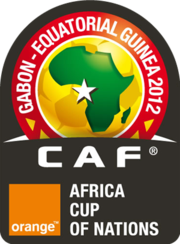 Both Mali and Ghana had experience of the 3rd/4th Place Play-Off fixture from previous Africa Cup of Nations tournaments. Prior to today, Mali had played in this fixture on three occasions and The Eagles were yet to register a win. In 1994 in Tunisia, Mali lost 3-1 to Ivory Coast, in 2002 when they hosted the tournament they lost 1-0 to Nigeria and two years later lost again to the Nigerians, this time 2-1 in Tunisia. Ghana have played in the play-off fixture on two previous occasions, losing to Zambia in 1996 in South Africa, but did take 3rd spot in 2008, when as hosts they overcame Ivory Coast 4-2.
Both Mali and Ghana had experience of the 3rd/4th Place Play-Off fixture from previous Africa Cup of Nations tournaments. Prior to today, Mali had played in this fixture on three occasions and The Eagles were yet to register a win. In 1994 in Tunisia, Mali lost 3-1 to Ivory Coast, in 2002 when they hosted the tournament they lost 1-0 to Nigeria and two years later lost again to the Nigerians, this time 2-1 in Tunisia. Ghana have played in the play-off fixture on two previous occasions, losing to Zambia in 1996 in South Africa, but did take 3rd spot in 2008, when as hosts they overcame Ivory Coast 4-2.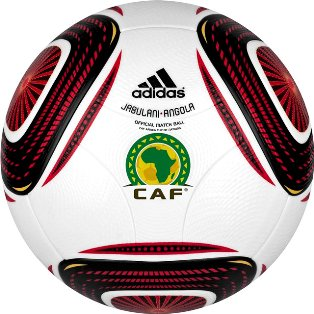 At the 2010 World Cup in South Africa, one of the talking points before and after the event was the Official match ball, the “Jabulani” (meaning, celebrate in Zulu). It came in for an enormous amount of criticism, with some claiming that the ball was too light and unpredictable in flight. Interestingly an earlier version of the ball had been used in January that year in the 2010 Africa Cup of Nations, where the Jabulani-Angola was the competition match ball. However, there was little criticism of the ball during that tournament. It may have been that issues were caused when the ball was modified for the World Cup. It may have been the altitude in South Africa. Or could the fact that once some starting complaining, a (possibly unfounded) seed of doubt was planted in players minds about the Jabulani?
At the 2010 World Cup in South Africa, one of the talking points before and after the event was the Official match ball, the “Jabulani” (meaning, celebrate in Zulu). It came in for an enormous amount of criticism, with some claiming that the ball was too light and unpredictable in flight. Interestingly an earlier version of the ball had been used in January that year in the 2010 Africa Cup of Nations, where the Jabulani-Angola was the competition match ball. However, there was little criticism of the ball during that tournament. It may have been that issues were caused when the ball was modified for the World Cup. It may have been the altitude in South Africa. Or could the fact that once some starting complaining, a (possibly unfounded) seed of doubt was planted in players minds about the Jabulani?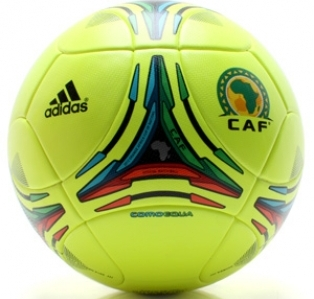
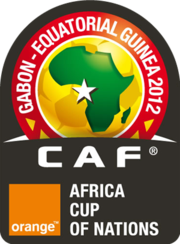 Slowly but surely the end of the 2012 Orange Africa Cup of Nations is coming into view. Tomorrow the last four teams take part in the two Semi-Final fixtures. Depending on the result it will lead either to an appearance in a Final and perhaps the opportunity of a career defining moment or having to take part in a game that no one wants to play in – the dreaded 3rd/4th Place Play-Off.
Slowly but surely the end of the 2012 Orange Africa Cup of Nations is coming into view. Tomorrow the last four teams take part in the two Semi-Final fixtures. Depending on the result it will lead either to an appearance in a Final and perhaps the opportunity of a career defining moment or having to take part in a game that no one wants to play in – the dreaded 3rd/4th Place Play-Off.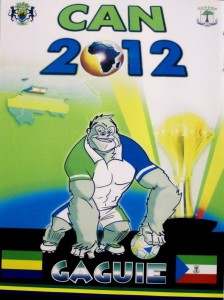 What you may ask has this to do with the Africa Cup of Nations? In watching the games and researching various aspects of the tournament, I came across the 2012 Orange Africa Cup of Nations mascot named Gaguie. Now you might think the name is from an old African dialect. In fact it is an amalgamation of the countries names who are co-hosting the tournament (Gabon and Equatorial Guinea). Simple, yet so effective. So what is Gaguie? Gaguie is a gorilla, but a gorilla with a message and was chosen as a symbol “…that represents the biodiversity and fauna of the central African ecosystems, spaces where both ecologic treasures suffer the danger of disappearance…” (from the Official Web Page of the Government of the Republic of Equatorial Guinea). Gaguie wears a football shirt which is blue, green and white (colours from the flags of Gabon and Equatorial Guinea). Again incredibly straightforward reasoning yet conveys the message of unity of the two co-hosting countries. Also, Gaguie is never seen without a football or in football action, so when looking at the mascot we know what sport it is representing. Some may say that it is all too simplistic. Really? I know which I prefer and which to me represents both the event, country and carries a serious message.
What you may ask has this to do with the Africa Cup of Nations? In watching the games and researching various aspects of the tournament, I came across the 2012 Orange Africa Cup of Nations mascot named Gaguie. Now you might think the name is from an old African dialect. In fact it is an amalgamation of the countries names who are co-hosting the tournament (Gabon and Equatorial Guinea). Simple, yet so effective. So what is Gaguie? Gaguie is a gorilla, but a gorilla with a message and was chosen as a symbol “…that represents the biodiversity and fauna of the central African ecosystems, spaces where both ecologic treasures suffer the danger of disappearance…” (from the Official Web Page of the Government of the Republic of Equatorial Guinea). Gaguie wears a football shirt which is blue, green and white (colours from the flags of Gabon and Equatorial Guinea). Again incredibly straightforward reasoning yet conveys the message of unity of the two co-hosting countries. Also, Gaguie is never seen without a football or in football action, so when looking at the mascot we know what sport it is representing. Some may say that it is all too simplistic. Really? I know which I prefer and which to me represents both the event, country and carries a serious message. In the case of Gabon, “G” stood for “Going, going, gone”, as there was no dream of progress for The Panthers and as a result both co-hosts exited at the Quarter-Final stage. However, it all looked so promising in Libreville, when after an even first-half, Gabon took the lead on 55 minutes with a goal best described as a comedy of errors. Gabon launched a free-kick into the Mali penalty area which was badly misjudged by Mali as they tried to clear. The ball fell to Gabon forward Aubameyang who cut the ball back into the box where it was missed by the Mali defence. The ball ran to Eric Mouloungui who drove the it towards goal and which found its way in after a deflection from two Mali players who were more effective in getting in each others way, rather than blocking the goal-bound effort. Gabon went in search of a second and captain Daniel Cousin hit the post when it was easier to score. The clock ticked down and it looked like Gabon were edging their way to the Semi-Final. Then with six minutes remaining, a ball into the Gabon box was headed back towards the penalty spot by Modibo Maiga. Substitute Tidiane Diabate with his back to goal, controlled, turned and fired under the body of Didier Ovono in the Gabon goal. Mali were level mainly through great skill by Diabate, but the finger will be pointed at Ovono, in that he should have kept the shot out. Extra-time came and went and suddenly it was the drama and agony of penalties. Six successful penalties had the scores at 3-3 as Gabon’s star performer Pierre-Emerick Aubameyang stepped-up. His kick was saved and the advantage shifted to Mali. Bakaye Traoré coolly put Mali 4-3 up, but Gabon stayed in the tie as Ecuele Manga casually chipped in his penalty to level the score at 4-4. It all came down to Seydou Keita who with calmness passed his spot-kick left footed into the net. It was a lesson in penalty taking and England fans will hope Fabio Capello was taking note! Despair for Gabon and elation for Mali. The Eagles were through and have the dubious pleasure of facing Ivory Coast in the Semi-Final. For now though it will be about enjoying the moment.
In the case of Gabon, “G” stood for “Going, going, gone”, as there was no dream of progress for The Panthers and as a result both co-hosts exited at the Quarter-Final stage. However, it all looked so promising in Libreville, when after an even first-half, Gabon took the lead on 55 minutes with a goal best described as a comedy of errors. Gabon launched a free-kick into the Mali penalty area which was badly misjudged by Mali as they tried to clear. The ball fell to Gabon forward Aubameyang who cut the ball back into the box where it was missed by the Mali defence. The ball ran to Eric Mouloungui who drove the it towards goal and which found its way in after a deflection from two Mali players who were more effective in getting in each others way, rather than blocking the goal-bound effort. Gabon went in search of a second and captain Daniel Cousin hit the post when it was easier to score. The clock ticked down and it looked like Gabon were edging their way to the Semi-Final. Then with six minutes remaining, a ball into the Gabon box was headed back towards the penalty spot by Modibo Maiga. Substitute Tidiane Diabate with his back to goal, controlled, turned and fired under the body of Didier Ovono in the Gabon goal. Mali were level mainly through great skill by Diabate, but the finger will be pointed at Ovono, in that he should have kept the shot out. Extra-time came and went and suddenly it was the drama and agony of penalties. Six successful penalties had the scores at 3-3 as Gabon’s star performer Pierre-Emerick Aubameyang stepped-up. His kick was saved and the advantage shifted to Mali. Bakaye Traoré coolly put Mali 4-3 up, but Gabon stayed in the tie as Ecuele Manga casually chipped in his penalty to level the score at 4-4. It all came down to Seydou Keita who with calmness passed his spot-kick left footed into the net. It was a lesson in penalty taking and England fans will hope Fabio Capello was taking note! Despair for Gabon and elation for Mali. The Eagles were through and have the dubious pleasure of facing Ivory Coast in the Semi-Final. For now though it will be about enjoying the moment.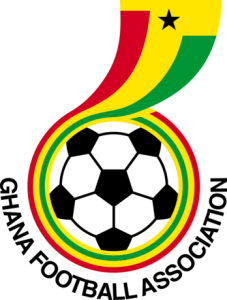 For Ghana is was a case of “G” for “Gift”, a gift that only came to fruition in extra-time. The prospect of extra-time didn’t look on the cards early on when The Black Stars made a lightening start and were 1-0 up against Tunisia within ten minutes. From a corner taken by Emmanuel Agyemang Badu, Ghana skipper John Mensah muscled out the Tunisian defence to head in. Ghana continued to press and a second goal seemed likely. With half-time looming and Ghana cruising, against the run of play, Tunisia scored three minutes before the break. A speculative cross into the box was headed home by Saber Khelifa who attacked the ball with more purpose than the Ghanaian defender. The second-half couldn’t separate the teams and so as with the earlier game it was extra-time. The “gift” arrived just over ten minutes into the first period of extra-time. Agyemang Badu looked like he had wasted a good attacking position, when he over hit a cross. However, Tunisian keeper Aymen Mathlouthi inexplicably tried to take the cross as it was sailing out of play. He failed to gather the ball and instead knocked it into the path of Andre Ayew who gratefully slotted home to give Ghana the lead 2-1. It was quite simply the keeping clanger of the tournament and Mathlouthi cost his team dearly. Into the second period of extra-time, Tunisia lost their composure as Aymen Abdennour was sent-off for elbowing an opponent and Oussama Darragi was lucky not to reduce Tunisia to nine men with an ugly challenge. It was a shame that the game finished in the manner that it did. However, Ghana made it through, although less comfortably than they would have hoped.
For Ghana is was a case of “G” for “Gift”, a gift that only came to fruition in extra-time. The prospect of extra-time didn’t look on the cards early on when The Black Stars made a lightening start and were 1-0 up against Tunisia within ten minutes. From a corner taken by Emmanuel Agyemang Badu, Ghana skipper John Mensah muscled out the Tunisian defence to head in. Ghana continued to press and a second goal seemed likely. With half-time looming and Ghana cruising, against the run of play, Tunisia scored three minutes before the break. A speculative cross into the box was headed home by Saber Khelifa who attacked the ball with more purpose than the Ghanaian defender. The second-half couldn’t separate the teams and so as with the earlier game it was extra-time. The “gift” arrived just over ten minutes into the first period of extra-time. Agyemang Badu looked like he had wasted a good attacking position, when he over hit a cross. However, Tunisian keeper Aymen Mathlouthi inexplicably tried to take the cross as it was sailing out of play. He failed to gather the ball and instead knocked it into the path of Andre Ayew who gratefully slotted home to give Ghana the lead 2-1. It was quite simply the keeping clanger of the tournament and Mathlouthi cost his team dearly. Into the second period of extra-time, Tunisia lost their composure as Aymen Abdennour was sent-off for elbowing an opponent and Oussama Darragi was lucky not to reduce Tunisia to nine men with an ugly challenge. It was a shame that the game finished in the manner that it did. However, Ghana made it through, although less comfortably than they would have hoped.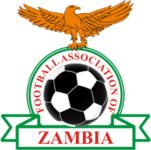 In the opening game of the evening at the Estadio de Bata, Zambia met Sudan. Zambia dominated from the off and were 1-0 up within the opening fifteen minutes. Kalaba swung in a Zambian free-kick from the wing and as the Sudanese defence stopped, Sunzu (sporting a rather fine mohican) headed in. Now depending whether you are part of the goalkeeping union or not, you would either say that Sudan custodian Akram was left badly exposed by his defence and had no chance with the header, or his challenge at punching away the incoming ball into the box was too little too late. Whatever you point of view, it added more fuel to the fire in the debate about the standards of goalkeeping in this competition. Sudan struggled to get into the first-half and any chance of establishing any rhythm was hindered by two enforced substitutions due to injury as Yousif Ela Eldin and Hamid Nazar were replaced. Overall, Zambia deserved their half-time lead. Sudan however dominated the opening twenty minutes of the second half with good chances created for Eltaib and Ahmed Khalifa. They were still in the match on 66 minutes, but then threw the game away. Kalaba broke into the Sudan penalty area and was being forced wide, when inexplicably, cynically and crudely, Saif Eldin Ali Idris hacked the Zambian down. A penalty was awarded and Sudan were down to ten men. Akram did well to save the spot-kick, but the rebound fell kindly to skipper Christopher Katongo who swept it in and put the game out of reach of Sudan. The result was put beyond doubt on 86 minutes, as James Chamanga curled in a beauty to make it 3-0. Undoubtedly, the turning point was the sending off and penalty, as it was still only 1-0 with about 25 minutes still to play. However, Zambia were the better team and are emerging as a dark horse in the tournament.
In the opening game of the evening at the Estadio de Bata, Zambia met Sudan. Zambia dominated from the off and were 1-0 up within the opening fifteen minutes. Kalaba swung in a Zambian free-kick from the wing and as the Sudanese defence stopped, Sunzu (sporting a rather fine mohican) headed in. Now depending whether you are part of the goalkeeping union or not, you would either say that Sudan custodian Akram was left badly exposed by his defence and had no chance with the header, or his challenge at punching away the incoming ball into the box was too little too late. Whatever you point of view, it added more fuel to the fire in the debate about the standards of goalkeeping in this competition. Sudan struggled to get into the first-half and any chance of establishing any rhythm was hindered by two enforced substitutions due to injury as Yousif Ela Eldin and Hamid Nazar were replaced. Overall, Zambia deserved their half-time lead. Sudan however dominated the opening twenty minutes of the second half with good chances created for Eltaib and Ahmed Khalifa. They were still in the match on 66 minutes, but then threw the game away. Kalaba broke into the Sudan penalty area and was being forced wide, when inexplicably, cynically and crudely, Saif Eldin Ali Idris hacked the Zambian down. A penalty was awarded and Sudan were down to ten men. Akram did well to save the spot-kick, but the rebound fell kindly to skipper Christopher Katongo who swept it in and put the game out of reach of Sudan. The result was put beyond doubt on 86 minutes, as James Chamanga curled in a beauty to make it 3-0. Undoubtedly, the turning point was the sending off and penalty, as it was still only 1-0 with about 25 minutes still to play. However, Zambia were the better team and are emerging as a dark horse in the tournament.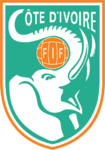 In the second game of the night the first-half was very much about The Elephants captain Didier Drogba. After thirty minutes (in which Ivory Coast had dominated), a penalty was awarded after Didier Zokora was fouled. Drogba stepped up, but his effort was well saved by Emmanuel-Danilo. However, within six minutes Drogba redeemed himself. Rui Fernando Gomez make a hash of controlling the ball, Drogba pounced, drove into the box and after cutting inside two defenders squeezed a shot past Danilo; 1-0 and Ivory Coast had their half-time lead. As in their previous fixtures, The Elephants seemed content to absorb the pressure in the opening of the second-half and play on the counter. The killer blow came with twenty minutes remaining. Yaya Toure fired in a free-kick and Drogba placed a bullet header into the net for his and The Elephants second. If that finish wasn’t impressive enough, then with just ten minutes to go, Yaya Toure scored with an absolutely stunning curling free-kick and clinch a 3-0 win. The Elephants through and yet to concede a goal – ominous for the other teams. Equatorial Guinea did their country proud and they will no doubt rise up the CAF and FIFA rankings after this showing.
In the second game of the night the first-half was very much about The Elephants captain Didier Drogba. After thirty minutes (in which Ivory Coast had dominated), a penalty was awarded after Didier Zokora was fouled. Drogba stepped up, but his effort was well saved by Emmanuel-Danilo. However, within six minutes Drogba redeemed himself. Rui Fernando Gomez make a hash of controlling the ball, Drogba pounced, drove into the box and after cutting inside two defenders squeezed a shot past Danilo; 1-0 and Ivory Coast had their half-time lead. As in their previous fixtures, The Elephants seemed content to absorb the pressure in the opening of the second-half and play on the counter. The killer blow came with twenty minutes remaining. Yaya Toure fired in a free-kick and Drogba placed a bullet header into the net for his and The Elephants second. If that finish wasn’t impressive enough, then with just ten minutes to go, Yaya Toure scored with an absolutely stunning curling free-kick and clinch a 3-0 win. The Elephants through and yet to concede a goal – ominous for the other teams. Equatorial Guinea did their country proud and they will no doubt rise up the CAF and FIFA rankings after this showing.